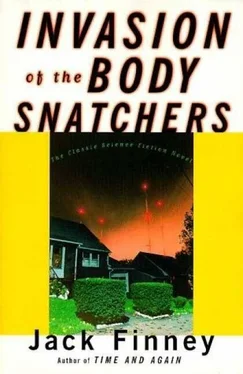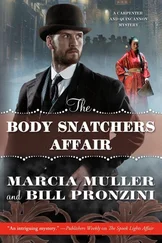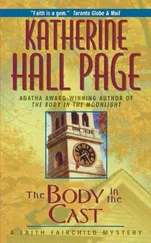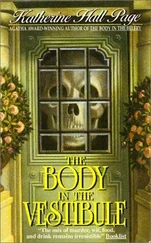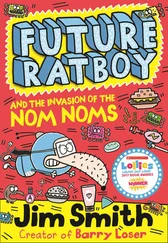Then, the beam of blue-white light focused on the wall just over Becky's head, I looked at her face. Her lips were slightly parted, her breathing regular, and her eyelashes curved down to lie on her cheek, a beautiful sight. She was very pretty, lying there, and I realized I was thinking how comforting it would be to be able to lie down beside her for a minute, to feel her stir sleepily, and feel the warmth of her next to me. Walk out of this trap, Son, I said to myself, and I turned toward the hallway and the attic stairs.
There was nothing in the attic that didn't belong there. In the beam of my flashlight I saw the row of my mother's dresses and coats, suspended on hangers from a length of pipe, and covered with a sheet to keep off the dust; on the floor beside them was her old cedar chest. I saw my father's wooden filing cabinet, his framed diplomas stacked on top of it, just as they'd been brought from his office. In that cabinet lay the records of the a colds, cut fingers, cancers, broken bones, mumps, diphtheria, births and deaths of most of Santa Mira for over two generations. Half the patients listed in those files were dead now, the wounds and tissue my father had treated, only dust.
I walked to the dormer window where I used to sit and read when I was a boy, and looked out at Santa Mira spreading away into the darkness below me. There they lay, the people of the town, sleeping out there in the dark; my father had brought a good many of them into the world. There was a night breeze stirring, and off to my left, on the pavement under the overhead street lamp, the fuzzy expanded shadows of the overhead telephone wires swung soundlessly back and forth over the deserted street, a lonely sight. I could see the McNeeleys' front porch, standing out sharply in the electric night-time glare of the street light, and the black shadowed bulk of their house behind it. I could see the Greesons' porch, too; I'd played house there with Dot Greeson when I was seven years old. Their long porch railing sagged inward in a shallow curve, and it needed painting, and I wondered why they'd let it go; they'd always kept up their place very neatly. Past the Greesons' I could make out the white picket fence around Blaine Smith's place; this town lying out there in the darkness was filled with neighbours and friends. I knew them all, at least by sight, or to nod or speak to on the street. I'd grown up here; from boyhood I'd known every street, house, and path, most of the back yards, and every hill, field, and road for miles around.
And now I didn't know it any more. Unchanged to the eye, what I was seeing out there now – in my eye, and beyond that in my mind – was something alien. The lighted circle of pavement below me, the familiar front porches, and the dark mass of houses and town beyond them – were fearful. Now they were menacing, all these familiar things and faces; the town had changed or was changing into something very terrible, and was after me. It wanted me, too, and I knew it.
A stair tread creaked, there was the sound of a soft footstep, and I swung in the darkness, crouching low, my flashlight raised as a weapon. Quietly Jack said, "It's me," and I flicked on the light and saw his face, tired and still sleepy. When he'd stopped beside me, I turned the light off, and for some moments we stood looking out at Santa Mira. The sleeping house under our feet, the street outside, the entire town were still and deathly silent; low ebb time for the human body and spirit.
After a few minutes Jack murmured, "Been downstairs lately?"
"Yeah," I said, then answered his unspoken question. "Don't worry; they've each had a hundred cc's of air, intravenously."
"Dead?"
I shrugged. "If you can say that about something that's never been alive, really. In any case, they're reverting."
"Back to the gray stuff?"
I nodded, and in the starlight from the window, I saw Jack shiver. "Well," he said then, trying to keep his voice casual, "it was no delusion. The blanks are real. They duplicate living persons. Mannie was wrong."
"Yeah."
"Miles, what happens to the original when the blanks duplicate a man? Are there two of them walking around?"
"Obviously not," I said, "or we'd have seen them. I don't know what happens, Jack."
"And why should your patients all check in with you, trying to convince you nothing was wrong? They were lying, Miles."
I just shrugged; I was tired and irritable and I'd have snapped at Jack if I'd tried to answer.
"Well," he said then, sighing wearily as he spoke, "whatever is happening, we have to assume that it's still confined to Santa Mira and the immediate area, because if it isn't – " He shrugged, and didn't finish. Then he went on: "So every house and building, every enclosed space in the entire town, has got to be searched. Right away, Miles," he said quietly. "And every last man, woman, and child has got to be examined; just how and for what, I don't know. But that's got to be figured out, and then done – fast. Cigarette?"
I took one from the pack Jack was extending, and he held alight for me. "The local or state police can't do it," he said. "They haven't the authority, and try to imagine explaining this to them, anyway. Miles, this a national emergency." He turned to me. "It actually is, as real as any we've ever faced. It may be more than that; a threat new to the entire history of the human race." The end of his cigarette glowed momentarily, then Jack went on, his voice quiet, matter of fact, and very earnest. "So somebody, Miles – the Army, Navy, the FBI, I don't know who or what – but somebody has to move into this town as fast as we can get them here. And they'll have to declare martial law, a state of siege, or something – anything! And then do whatever has to be done." His voice dropped. "Root this thing out, smash it, crush it, kill it."
We stood there a moment or so longer, while I thought of what might be lying all around us, under the roofs out there, hidden in secret places; and it wouldn't bear much thinking about. "There's some coffee downstairs," I said, and we turned toward the stairs.
In the kitchen I poured us each some coffee, then Jack sat down at the table, while I leaned back against the stove. "All right, Jack," I said then. "But how? What do we do? Telephone Eisenhower, or something? Just ring up the White House, and when he answers the phone tell him that out here in Santa Mira, which went Republican in the last election, we've found some bodies, except they aren't really bodies but something else, we don't know what, and please send the Marines right away?"
Jack shrugged impatiently. "I don't know! But we've got to do something; we have to find a way to reach people who can act! Quit clowning; figure something."
I nodded. "All right; chain of command."
"What?"
Eyes narrowing, I stared at Jack, suddenly excited, because this was the answer. "Listen; who do you know in Washington? Someone who knows you, knows you're not crazy, and that when you tell this story you mean it, and it's true. Somebody who can start the ball rolling, and keep this moving up a notch at a time till it reaches someone who can do something!"
After a moment or so, Jack shook his head. "Nobody; I don't know a soul in Washington. Do you?"
"No" – I slumped back against the stove. "Not even a Democrat. Write to your congressman." Then I remembered, and shrugged. "I do know one guy, at that; the only person in Washington I know in any kind of official capacity at all. Ben Eichler – he was an upperclassman when I started school. He's in the regular Army now, works in the Pentagon. But he's only a lieutenant-colonel; I don't know anyone else."
"He'll do," Jack said quickly. "The Army could handle this, and he's in it. Right in the Pentagon, and with a pretty good rank; at least he could speak to a general without being court-martialed."
Читать дальше
